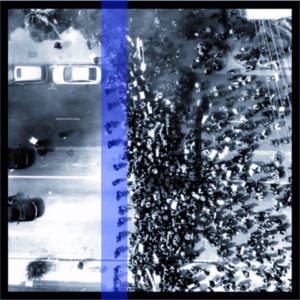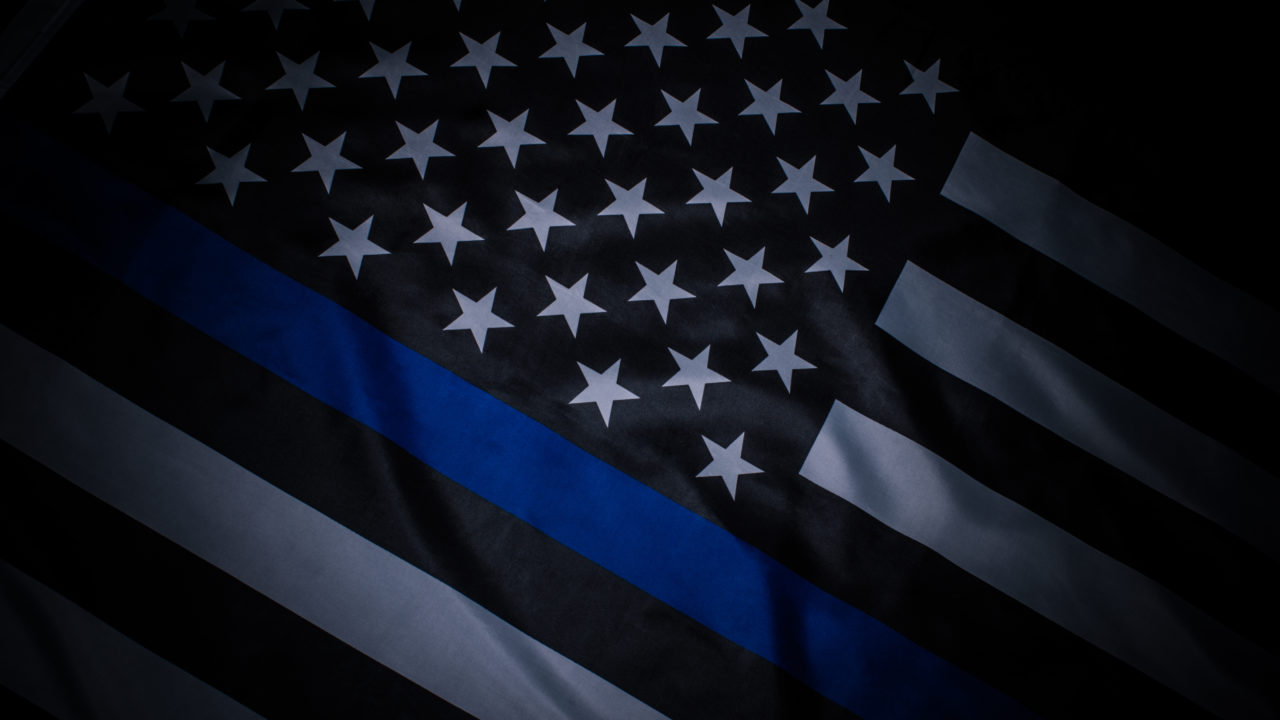This first appeared in The Havok Journal on September 2, 2020.
________________
The continued assault on the profession of law enforcement has taken another hit. The propaganda machine of radical groups is trying to get people to believe that the thin blue line flag is a form of white supremacy. The media of course does not have a problem running a story like that. The media hardly does any investigative journalism these days. It’s more for ratings and hot button topics. Every single law enforcement officer was left scratching their heads at that one. When you think you’ve heard and seen it all, society gets you again. Let’s get serious though and dispel these ridiculous lies.
Before the “thin blue line” became a flag, its origins can be traced to as far back as 1922, when NYPD Commissioner used the term “thin blue line.” But what does it represent? The thin blue line represents the line between order and chaos. Hence, the blue line represents law enforcement being in-between the order and chaos.
Over the years it has been turned into flags, stickers, t-shirts, coffee mugs, etc. to honor police officers who have died in the line of duty and to continue that message of the thin line between order and chaos.
Some feel it is a symbol for an “Us vs. Them” mentality between the citizens and law enforcement. The “Us vs. Them” mentality comes from those who mean to cause further division in the country. Sure, you have the bad apples out there. Like any profession though, you have bad apples in every industry. Certain groups, the media, social media, certain lawyers, politicians, and others want the general public to feel that is an “Us vs. Them” mentality. Why? I believe they want to undermine law enforcement so they are less likely to be held accountable for their actions. Think about it.

The above picture is the simplest depiction of what the thin blue line represents. It is not the wall of silence, it is not bad cops hiding behind it, it is the line between order and chaos. The thin blue line is that wall of police officers who run towards that gunfire, who keep evil at bay, who represent the best their communities have to offer.
These are very troubling times for those who have dedicated their lives as police officers. The media shows public opinion of police officers is plummeting, or that’s how they are making it seem. The silent majority is going to be affected by these knee-jerk policies. The silent majority can no longer be silent. They need to be the voice of reason. They need to remind their ELECTED officials of who they represent. They don’t represent lobbyists or special interest groups. They represent the PEOPLE and the PEOPLE need their voice heard.
_________________________________
Ayman is an Army Veteran who was deployed during Operation Iraqi Freedom in 2005 and became a police officer in 2007 after 8 years of military service. He has worked in the patrol division, in a plainclothes anti-crime unit, as a Metro-SWAT operator, and as a detective in a major crimes unit, as a narcotics task force detective with the DEA, and as an operator with the DEA Special Response Team (SRT). He also helped organize SRT operations in Southern New England.
As an assistant team leader, he assisted and coordinated the planning of operations as well as conducted various aspects of training. He has investigated high-level drug traffickers, gang members, and conducted numerous operations. He is currently the Officer in Charge of the Problem-Oriented Policing Unit. Ayman is a law enforcement firearms instructor, a less-than-lethal weapons instructor, a certified use of force instructor at his police department Ayman’s hands-on experience with law enforcement operations at many different levels coupled with his compassion to save lives has brought him to coordinate “Project Sapient.”
This initiative is a joint effort comprised of law enforcement professionals of all levels combined with the Special Forces philosophy of winning hearts and minds. Ayman has found that to reach more officers and departments, it is important to share his experience with media outlets that reach law enforcement.
He regularly contributes to The Havok Journal, writing articles that provide insight into current law enforcement trends and methodologies to help officers become better equipped to handle an ever-changing work environment.
Project Sapient is currently a Podcast. Ayman’s vision of Project Sapient is to eventually train other law enforcement officers and civilians alike in stress inoculation. Something that is sorely needed in the Law Enforcement profession. In his writing, Ayman draws from his hands-on experience as both a law enforcement professional and his military service.
For years, Ayman has seen the trend in lack of training policing. Whether it’s budget cuts, political enemies, or ineffective policy, Ayman has made it his mission to bring innovation, unconventional policing methods, and to have those tough conversations and instruction to assist law enforcement to better relate with and advise communities.
He sees firsthand the need for better training and tools for law enforcement to serve their communities most effectively. A better-trained officer is what policing a free society requires.
Buy Me A Coffee
The Havok Journal seeks to serve as a voice of the Veteran and First Responder communities through a focus on current affairs and articles of interest to the public in general, and the veteran community in particular. We strive to offer timely, current, and informative content, with the occasional piece focused on entertainment. We are continually expanding and striving to improve the readers’ experience.
© 2024 The Havok Journal
The Havok Journal welcomes re-posting of our original content as long as it is done in compliance with our Terms of Use.


